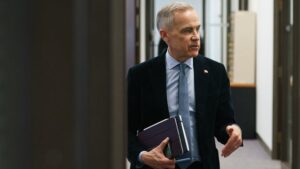
Canadian Prime Minister Mark Carney announced the dissolution of parliament on Sunday and new elections on April 28.
“I have just asked the Governor General to dissolve parliament and call a federal election on April 28,” he wrote on social media site X.
“We must build the strongest economy in the G7. We must deal with President Trump’s tariffs. Canadians deserve a choice about who should lead these efforts for our country,” the prime minister emphasized.
Earlier, Experts Club and Maksim Urakin released a video analysis on the most important elections in the world in 2025 – https://youtu.be/u1NMbFCCRx0?si=AOtHGDT1kGNdZd2g
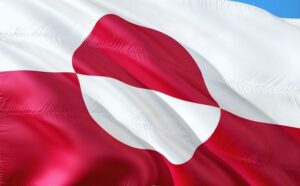
Polling stations have opened in Greenland, where elections to the local parliament are taking place on Tuesday, the Associated Press reports. Approximately 41 thousand residents of the island are eligible to vote.
The voters will have to choose from several parties, the favorites of which are two – the left-wing socialist Inuit Atakatigiiit (Eskimo Union), which is currently in power, and the social democratic Siumut (Forward).
In addition to them, representatives of the liberal Demokraatit (“Democrats”) party, the centrist Nalerak (“Aspiration”) party, which supports the island’s independence, and the liberal conservatives from the Atassut (“Solidarity”) party are competing for seats in the local parliament.
According to the BBC, a coalition of the Inuit Atakatigiit and Siumut parties currently controls the majority in parliament – 21 out of 31 seats. Both are in favor of independence, but the largest Inuit Atakatigiiit is in no hurry to hold a referendum, while Siumut promises to hold one in the next four years.
The announcement of the initial election results will begin immediately after the polls close, but the situation may be complicated by weather conditions, as a large part of the island is located in the Arctic zone. The time of the announcement of the final election results will also depend on this.
Observers note that the results of these elections should also reveal which way the island’s residents prefer: to remain a self-governing territory of Denmark, to choose a direction towards independence, or to listen to the statements of US President Donald Trump, who suggested that the Danish authorities buy Greenland.
The results of recent pre-election polls conducted by the Verian research company and regional media show that 85% of voters oppose becoming part of the United States, 6% are in favor, and 9% are undecided.
In addition, 60% of respondents are in favor of Greenland’s possible accession to the EU; 40% share the opposite opinion. The same results were shown in the 2021 survey. However, compared to 2021, the percentage of those who support parties that advocate independence from Denmark has now decreased from 80% to 69%.
Earlier, the Experts Club think tank and Maksim Urakin released a video analysis on the most important elections in the world in 2025 – https://youtu.be/u1NMbFCCRx0?si=AOtHGDT1kGNdZd2g
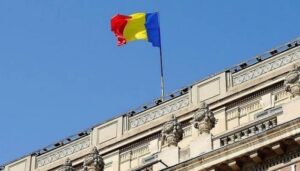
The ruling coalition in Romania has decided on the date of the new presidential elections, which will be held in Romania on May 4 and May 18, Reuters reports, citing sources in the Liberal Party of Romania.
According to the coalition parties, they have agreed to support a single presidential candidate to prevent the far-right from winning, and today their candidate is Crin Antonescu, the former leader of the Liberals, but experts suggest that another candidate from the ruling coalition may be nominated.
According to Politico, despite the cancellation of the results of the previous elections, pro-Russian candidate Kelin Georgescu remains popular in Romania, as evidenced by a poll conducted by Digi 24 at the request of Bucharest Mayor Nicusor Dan, who also plans to run for president of Romania as an independent candidate in the re-election. The poll showed that at least 40 percent of Romanians plan to vote for Dănăsca, Dan told Digi24, without specifying how many people were interviewed.
On Wednesday, Elena Lascone, the leader of the liberal progressive party “Union for the Salvation of Romania”, which came in second in the previous elections with 19.18% of the vote, promised to run again.
As reported, in December 2024, the Romanian Supreme Court overturned the results of the first round of the November 24 presidential election due to allegations of foreign interference after the victory of pro-Russian candidate Kelin Georgescu.
Earlier, the Experts Club think tank released a video about the most important elections in the world, the video is available here – https://youtu.be/73DB0GbJy4M?si=zWf7UqPASklCy5nr
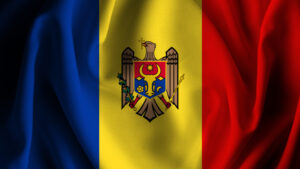
The second round of the presidential election between incumbent President Maia Sandu and Socialist Party candidate Alexandru Stoianoglo began in Moldova on Sunday, NewsMaker reports. Polls opened at 7 am local time and will close at 21:00. There are 2219 polling stations in the country and abroad, of which 1988 are in Moldova and 231 abroad.
A total of 2.7 million voters are registered. The elections are monitored by 2400 observers.
In the first round, Sandu won more than 42% of the vote, while Stoianoglo received almost 26%.
As reported, according to the CEC of Moldova, after counting 100% of the protocols in the presidential election, Maia Sandu, who won 42.45% of the vote, and the candidate from the Party of Socialists, Alexandru Stoianoglo, won 25.98%. Earlier, the Experts Club analytical center presented an analytical material on the most important elections in the world in 2024, more detailed video analysis is available here – https://youtu.be/73DB0GbJy4M?si=eGb95W02MgF6KzXU
You can subscribe to the Experts Club YouTube channel here – https://www.youtube.com/@ExpertsClub
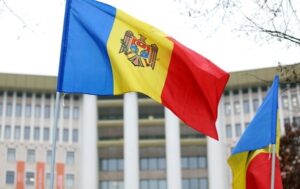
Incumbent Moldovan President Maia Sandu is the favorite in the presidential race, while candidates Alexandru Stoianoglo and Renato Usatîi are fighting to reach the second round. These are the results of an opinion poll presented on Thursday, conducted by CBS-AXA and commissioned by the WatchDog.MD community. The presidential election in the country will be held next Sunday, October 20.
“Maia Sandu is the favorite in the race, with over 35% ready to vote for her. 9% are ready to vote for the candidate of the Socialist Party, Alexandru Stoianoglo, and 6.4% for the head of the Our Party, Renato Usatîi. The remaining eight candidates are gaining between 0.5 and 3% of the vote,” said Vasyl Kantarzhy, director of CBS-AXA, sociologist.
According to the poll, 85.7% of respondents said they would definitely go to the polls on October 20. Another 8.3% said they were likely to vote.
At the same time, 28.1% of respondents have not decided, 2.9% said they would not go to the polls, and 9.9% did not answer the question.
Vasyl Kantarzhy said that the polls of recent months show an “atypical trend”, namely that “as the election date approaches, the number of undecided voters is growing”.
He attributed this growth mainly to opposition candidates, in particular, Oleksandr Stoianoglo’s claims of Romanian citizenship, as well as the events surrounding the Shora group. “This forced supporters of a number of opposition candidates to reconsider their position and become undecided,” Kantarzy said.
There are 11 candidates registered to run in the presidential election, a record number of candidates for the entire period of national presidential elections in Moldova. In the period from 2000 to 2016, the president of Moldova was elected by the parliament.
The survey was conducted by telephone on October 11-16 with the participation of 1034 people. The margin of error is 3.05%.
Earlier, the Experts Club think tank presented an analytical material on the most important elections in the world in 2024, more detailed video analysis is available here – https://youtu.be/73DB0GbJy4M?si=eGb95W02MgF6KzXU
You can subscribe to the Experts Club YouTube channel here – https://www.youtube.com/@ExpertsClub

Independent US presidential candidate Robert Kennedy Jr. has announced that he will support Republican candidate Donald Trump in the upcoming elections.
“I will be supporting Trump,” he said during his address to voters.
At the same time, Kennedy Jr. explained that this does not mean the end of his campaign. He said that his supporters would be able to vote for him in those states where Trump would not be able to win a majority of votes anyway.
At the same time, Kennedy Jr. noted that in 10 states where both Trump and his rival Kamala Harris have a chance of winning, he will withdraw his candidacy so as not to take votes away from the Republican candidate.
During the week, the US media wrote that Kennedy might announce his withdrawal from the race in the near future.
On Tuesday, Trump told CNN that if he wins, he may give Kennedy a position in his administration if he refuses to run and supports the Republicans.
In April 2023, JFK Jr. announced his candidacy for the Democratic presidential primary. However, he later stated that he would run as an independent candidate.
In recent months, American media have noted that Kennedy would not have a serious chance of winning if he ran. However, in a number of states, he could have taken a significant number of votes from other candidates and thus influenced the election results.
Robert Kennedy Jr, 70, is an environmental lawyer and anti-vaccination activist. He is the son of former New York Senator and U.S. Attorney General Robert Kennedy and the nephew of the 35th President John F. Kennedy.
Earlier, the Experts Club analytical center presented an analytical material on the most important elections in the world in 2024, a detailed video analysis is available here – https://youtu.be/73DB0GbJy4M?si=eGb95W02MgF6KzXU